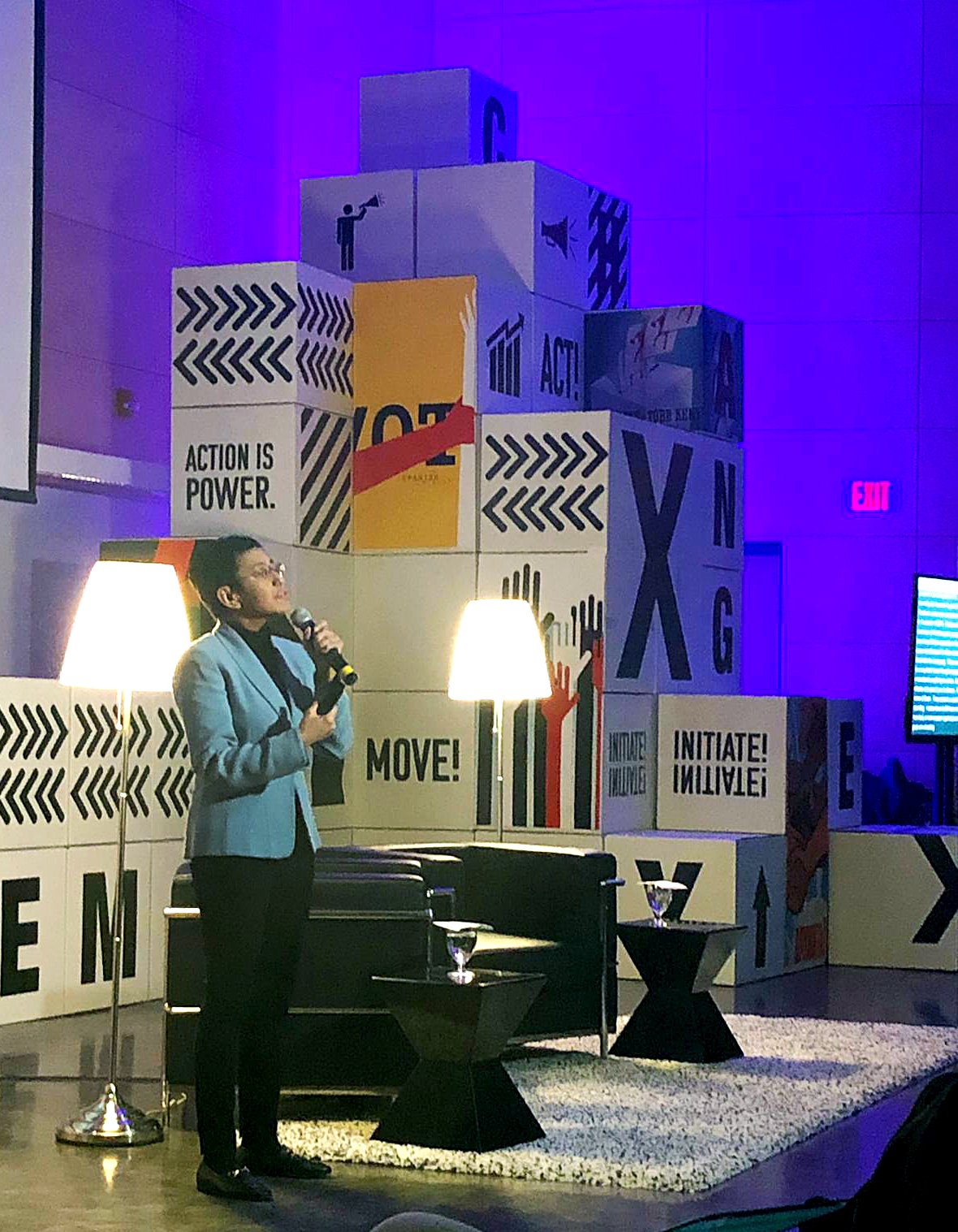Hundreds of people gathered at Ryerson University to talk about how to navigate an “age of polarization” at a conference called DemocracyXChange. The Office of Public Affairs of the Baha’i Community of Canada was one of the sponsors and participants in the conference, which took place from January 26-27.

The organizers of the conference explained that in the current moment, “it’s more important than ever to connect across borders, political orientations, values, and points of view.”
In the opening session of the conference, Astra Taylor, director of a film called “What is Democracy?” described how she sees the humanity’s situation as approaching a turning point. She said that in a conference like this, we are all thinking about democracy but we may have different conceptions of what it is.
In Taylor’s film, one of the subjects says that “democracy is our passion to do things together.” “That is a great definition,” said Taylor. “It’s the capacity to do, and one of the things we need to do is think. We need to act, and we need to think.”
The DemocracyXChange was organized by the Open Democracy Project and the Ryerson Leadership Lab, with support by more than a dozen organizations from a range of backgrounds.
Karim Bardeesy and Ana Serrano, the co-chairs of the conference, said their aim was to bring people together “to learn from each other, to reach across ideological difference, and to drive change from the ground up.”
The conference explored a number of themes: the advancement of women, the politics of listening, how cities are shaping the future, the role of technology, the challenge of climate change, how religion and spirituality can positively influence change, among many others.
“I was impressed at the conference by how people carefully considered the reduction of the extremes of wealth in addition to reducing extreme poverty,” observed Ashraf Rushdy, Project Coordinator with the Baha’i community’s Office of Public Affairs.
A core theme of the conference was how to create inclusive deliberation on the pressing challenges facing societies that are divided by extreme polarization and growing economic inequality.
Jonathan Smucker spoke about a grassroots mobilization effort in Lancaster, Pennsylvania, which has tried to use non-partisan language that brings people together in new ways to think about social and political change. “When you talk about your values, your story, or specific issues through a values lens, a lot of people’s politics are more complex” than political labels, he said.
Another theme at the conference was how to restore the language of ethics, values, and even “public love” to our political processes.
We need to develop a “spiritual grammar” that is capable of reaching across religious and other traditions to reinvigorate and expand our public conversation, observed Jason McKinney, an Anglican priest.
“I was excited to participate in a conversation that really tried to bridge divides and provide hope to people who are working for a better world,” said Laura Friedmann, Media Officer with the Baha’i community’s Office of Public Affairs. “It reminded me that when we strive for unity and understanding, we can imagine lots of new possibilities for future.”

